
2011: MY YEAR IN FILM
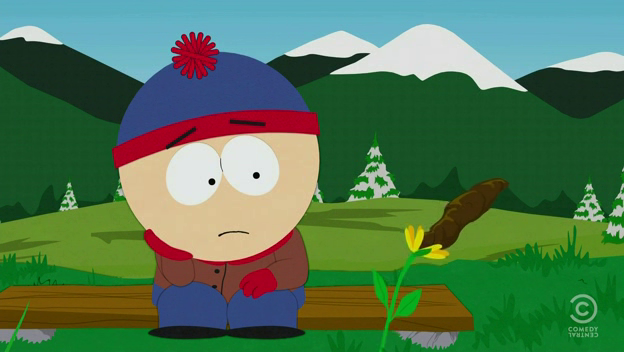 I've never been one to claim that television has surpassed cinema as the "new premiere forum for creative excellence" or whatever it is that's been erroneously attributed over the last few years. Although I included a TV mini-series in my list of this year's best films and couldn't help but mention a wonderful, transcendent scene from a TV show in my favorite movie moments, I'll never be convinced that television can ever come within even a fleeting glimpse of the kind of brilliance film so often realizes. Movies will always be movies and TV will always be TV, no matter how entertaining it may be to see guys in suits smoking or vampires fighting smoke monsters etc. (and no matter how good Aaron Paul was on Breaking Bad this year, which was really fucking good.) That said, the most striking moment in 2011 from any medium for me came via the boob tube, in the mid-season finale of a notably mediocre season of South Park, of all things. Titled "You're Getting Old," it dealt with Stan becoming so increasingly cynical at the world around him that literally everything starts to look and sound like shit. In movie previews Jim Carrey doesn't adopt a pack of penguins, but a pack of slipping, sliding shits. At a diner, a bowl of processed ice cream is just a bowl of bowel movement. Instead of harmonizing tween poppers, the sound of sloppy diarrhea blares through the headphones. It gets so bad that the people around Stan who he cares about, who are fed up with his inability to just shut up and enjoy the same dumb stuff they always have, start to spew shit from their mouths. It was a poignant and unexpected season finale (which, kind of unfortunately, didn't turn out to be a surprise series finale) that made me think about my own intolerance for excremental movies and what it says about me. We here at the 'smoke are self-proclaimed elitists, and while I like to think it's because we love movies so much we hold them to a reasonable set of high standards I still find myself alienated from film-obsessed groups who get excited about deconstructing every excruciating frame of alleged "high art" crap like Meek's Cutoff as well as cabals of casual moviegoers who insist I just gotta see overhyped popular shit-hits like Bridesmaids (not to mention those encanted by Oscar-approved movies that appeal to both crowds like The Artist and Midnight in Paris.) I honestly don't think I'm better than these people or these movies, but it always seems impossible for me to engage them or to convince anybody that Tabloid should so clearly be their favorite documentary of the year, yet alone their favorite movie of all goddamn time. What's the point? If a person has liked anything by Alexander Payne in the past there's no convincing them The Descendants is the worst kind of movie: its depiction of the mockable foibles of an American man experiencing a life crisis that will forever change his outlook is going to have them chuckling and nodding their heads appreciatively. Is there anything redeeming in that kind of movie? I suppose there must be. So what's wrong with me that I can only see the shit in Beginners (Aw, are these rich young beautiful people depwessed? Poor babies. Go fuck yourself, assholes. I felt nothing but utter contempt for every single character), Crazy Stupid Love (So Julianne Moore's a slut for fucking Kevin Bacon but Steve Carell banging young broads is just him "finding himself?" What did folks find charming about this uncomfortably incestuous rom-com?) or even largely inoffensive but uninspiring critical darlings like Drive? Is it honestly because I have, as a friend of mine claimed recently, an instant bias against films that are either "too popular or too pretentious?" In the South Park episode, Stan defends himself by claiming "I haven't changed, the world has - don't you see it??" Is there really something wrong with the rest of humanity, or is there something wrong with me? It's become increasingly harder to convince myself that "no...it's the children who are wrong."
I've never been one to claim that television has surpassed cinema as the "new premiere forum for creative excellence" or whatever it is that's been erroneously attributed over the last few years. Although I included a TV mini-series in my list of this year's best films and couldn't help but mention a wonderful, transcendent scene from a TV show in my favorite movie moments, I'll never be convinced that television can ever come within even a fleeting glimpse of the kind of brilliance film so often realizes. Movies will always be movies and TV will always be TV, no matter how entertaining it may be to see guys in suits smoking or vampires fighting smoke monsters etc. (and no matter how good Aaron Paul was on Breaking Bad this year, which was really fucking good.) That said, the most striking moment in 2011 from any medium for me came via the boob tube, in the mid-season finale of a notably mediocre season of South Park, of all things. Titled "You're Getting Old," it dealt with Stan becoming so increasingly cynical at the world around him that literally everything starts to look and sound like shit. In movie previews Jim Carrey doesn't adopt a pack of penguins, but a pack of slipping, sliding shits. At a diner, a bowl of processed ice cream is just a bowl of bowel movement. Instead of harmonizing tween poppers, the sound of sloppy diarrhea blares through the headphones. It gets so bad that the people around Stan who he cares about, who are fed up with his inability to just shut up and enjoy the same dumb stuff they always have, start to spew shit from their mouths. It was a poignant and unexpected season finale (which, kind of unfortunately, didn't turn out to be a surprise series finale) that made me think about my own intolerance for excremental movies and what it says about me. We here at the 'smoke are self-proclaimed elitists, and while I like to think it's because we love movies so much we hold them to a reasonable set of high standards I still find myself alienated from film-obsessed groups who get excited about deconstructing every excruciating frame of alleged "high art" crap like Meek's Cutoff as well as cabals of casual moviegoers who insist I just gotta see overhyped popular shit-hits like Bridesmaids (not to mention those encanted by Oscar-approved movies that appeal to both crowds like The Artist and Midnight in Paris.) I honestly don't think I'm better than these people or these movies, but it always seems impossible for me to engage them or to convince anybody that Tabloid should so clearly be their favorite documentary of the year, yet alone their favorite movie of all goddamn time. What's the point? If a person has liked anything by Alexander Payne in the past there's no convincing them The Descendants is the worst kind of movie: its depiction of the mockable foibles of an American man experiencing a life crisis that will forever change his outlook is going to have them chuckling and nodding their heads appreciatively. Is there anything redeeming in that kind of movie? I suppose there must be. So what's wrong with me that I can only see the shit in Beginners (Aw, are these rich young beautiful people depwessed? Poor babies. Go fuck yourself, assholes. I felt nothing but utter contempt for every single character), Crazy Stupid Love (So Julianne Moore's a slut for fucking Kevin Bacon but Steve Carell banging young broads is just him "finding himself?" What did folks find charming about this uncomfortably incestuous rom-com?) or even largely inoffensive but uninspiring critical darlings like Drive? Is it honestly because I have, as a friend of mine claimed recently, an instant bias against films that are either "too popular or too pretentious?" In the South Park episode, Stan defends himself by claiming "I haven't changed, the world has - don't you see it??" Is there really something wrong with the rest of humanity, or is there something wrong with me? It's become increasingly harder to convince myself that "no...it's the children who are wrong."
Before I end up ranting against every movie that came out in 2011, let me stop rationalizing and try to clarify a little. As a culture, we've become so used to denoting something as good or bad, thumbs up or thumbs down, "two squeaks cuz it's the zaniest one of all!" As soon as the light go down in the theater, the critical glasses come on; the instant we're out the door the evaluation begins. My wife has complained on numerous occasions about how I immediately launch into a diatribe at the end of every movie we watch, and she's right to be annoyed, especially since to me the obvious "shit" isn't the same kind of stuff most people complain about. I don't really care that Adam Sandler can release any kind of movie he wants, or that movie stars direct vanity projects, or that the Twilight movies make money, or that Michael Bay exists (that's not entirely true, I hate Platinum Dunes with as much passion as they lack when they regurgitate yet another horror remake into the theaters but I think you get my point.) Actually I should say that I do care, but if you subject yourself to that nonsense you get what you deserve. Every year, I can't believe some of the films that make it on the "best" lists of esteemed film writers...so many of them are just the worst shit imaginable. This is particularly true of 2011, a year where my selection of favorite films breaks down to a TV mini-series, a movie made 6 years ago, a movie made 20 years ago, a movie that came out in 2010 and six that haven't been released yet (of the three that actually saw any kind of actual play in theaters before last December, one of them languished in limited release before finally opening wide this month and the other two are movies I enjoyed the hell out of but would hardly be willing to stake my reputation on; I'm even kind of terrified of ever seeing either of them again lest my enthusiasm turn to outright embarassment.) The fact that I love every one of these selections complicates things: can I consider it a good year for movies despite so few of my favorites actually being FROM this year? Has snobbery or "fuddyduddyness" taken over my enjoyment of le cinema? Do I need to go beyond my willingness to give something - pretty much anything - a chance and really challenge myself to discover the good in the bad? I don't want to lose that enthusiasm I have for movies, or the belief that there are redeeming qualities to be found in even the shittiest of shit, so I guess my resolution for 2012 is to change the way I watch movies. Not that I'm sure how that kind of thing is done, but it's worth thinking about. In the meantime, just get me a cheeseburger and tell the chef to go easy on the shit.
MY FAVORITE FILMS OF 2011
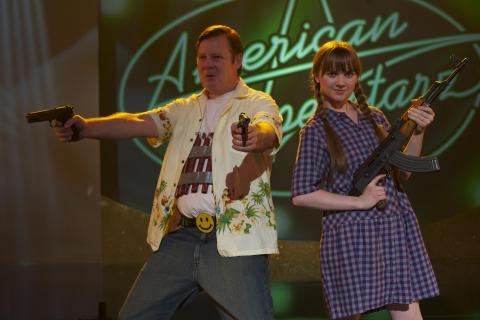
Speaking of the excruciating ubiquity of shit: every choleric political pundit, reality TV star and honest-to-blog screenwriting sensation is a frustration for Frank, the hero of God Bless America, Bobcat Goldthwait's stellar ode to cultural savagery. Frank is somebody who's sick of the shit, just can't take it anymore, so that when his own life spirals to its lowest possible point his resolution is to give up begrudging acceptance and become a vigilante for the publicly debased. He starts off targeting the empowered harriers of popular media but quickly realizes the real problem is the predominant mentality of American citizens who not only condone but subject themselves to our callous circus freak culture. Bobcat believes it's something that bleeds into our everyday lives and infects us - makes it a little easier for the powerful to step on the small people, who in turn subject themselves to helotry and humiliation just to get a feel of that power themselves. Insensibility becomes more than acceptable, it becomes the tolerated norm, sanctioned cruelty the underlining authority for every act of abuse or indifference that shatters us a little bit at a time. In this miraculous venting of Chayefskian outrage, Goldthwait has given a thoughtful response to the complicated question of why the country has become so uncaring and how popular media makes it easier for people to slip into suffering and destitution without coming off as preachy or self-righteous, and most admirably not provocative for the mere sake of it. It goes without saying that the choice to make his two leads likable spree killers is audacious, but only Goldthwait could match extremism with extremism in a way that the nation's popularly-approved nepotism towards self-righteous bullies seems a greater crime than cold-blooded assassination. Goldthwait walks down these mean streets but is not himself mean: although the dark comedy is incendiary, it's a commentary on the kind of widespread crude shock that is as empty as it is mean-spirited, which God Bless America isn't for a second. He loves his characters and so do we - if Frank's motivation is somewhat lost on scrabby teenage sidekick Roxy, indulging her own violent fantasies against obnoxious idiots, their relationship is one of mutual frustration that brings them closer together. Without someone to share that frustration with, you might as well just lie down and die.
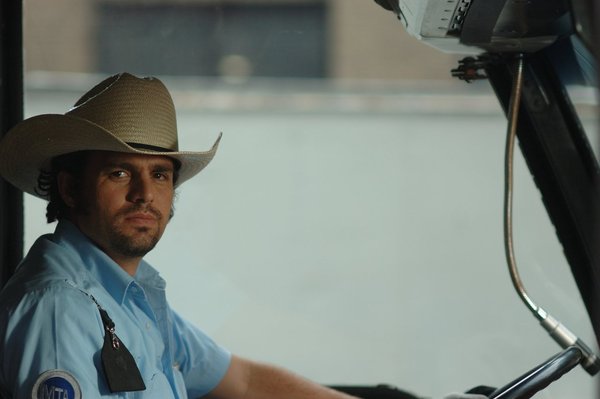
Something dies early on in Margaret, and it's not just a legless Allison Janney (or the producing team, half of whom have passed away since the start of production six years ago.) There's a shift in the sheltered world of Anna Paquin's Lisa Cohen; suddenly she's so much more vulnerable, in free fall in a big city that seems so abruptly condensed, so limited in its possibilities. Like the "young child" addressed in the Gerard Hopkins poem from which Kenneth Lonergan takes the title, Lisa mourns for herself - for the frivolous immunity of youth that's been lost in the transition from "spring and fall," a big theme in all of Lonergan's work but never so astonishingly realized as it is here. As Lisa's sheltered world shatters, suddenly trivial polemics grow more heated, thoughtless dismissals hurt more, the things you say are now just as likely to condemn as to justify. She finds herself at a point where what she says and does mean something and effect other people, where the thoughts that previously had no relation to her actions become definitive of who she is, when the burden of responsibility has gone from minimal to crushing. Lisa can't accept that she's becoming part of the impartial injustice of the world, is devastated to be at the time in her life when that one Big Gesture amounts to nothing, and to assuage the guilt she feels in the wake of a fatal accident she does what she can to metastasize the blame onto others and absolve her own culpability. The rest of her entire life isn't going to necessarily be effected by what's happened, but for it to occur at this point in time, at her age, at the place where she is right now, is a sobering lapse of faith in her natural urgency to extract ignorance with experience and conquer the limits of her own perception. Lisa is cruel, but only as self-possessive as she is self-destructive, and Paquin is amazing: it's incredible watching her shields go up and down, often just a moment too late. She's a million miles away from Sammy in You Can Count on Me: the two films share superficial similiarities (the irresponsible affair with an insecure authority figure, the awkward confrontation on the porch while the girlfriend wants to know what the hell is going on, the Culkin) but Margaret is a different creature altogether, culled from the collective experiences of people living in a city that no longer feels secure. Opposing political views, the way different people engage works of art, how one person reads a silent look exchanged with another...they're all ways to deal with the interactions we have with each other.
It seems funny to declare Margaret the unequivocally best "official" release of 2011, since it barely got a release at all. It would have easily been the best film of 2006 or 2007 had it not become such a post-production fiasco, so declaring it the best movie from this year hardly seems a stretch. Going into it, I was genuinely worried that the film wasn't all that good, that it was getting support because critics wanted to make a show of siding with of a studio-bullied artist or just wanted to be cool by making themselves part of a rare movie that got next to no distribution. Not only did that prove not to be the case, but after seeing it all the (largely positive) reviews actually seemed to be under-selling its greatness. A lot has been written about its patchwork editing and incomplete scenes, but I think that's part of what makes it great. It is gloriously flawed; its unfinished-ness is like its lead character, her transition so frustratingly indecisive, and half-scenes reflect half-understandings. It's such a strong piece of work that it was destined to make it to the screen eventually (it actually gives me hope that the movie I shot in 2005 will one day be completed - somebody get Matt Broderick on the phone!) It's difficult to assess - the fact that he allegedly had a hard time completing the film suggests that he's struggled - but based on the two movies he's made Lonergan seems like no less than the most original and exciting narrative filmmaker in North America right now, tantamount to a great novelist.
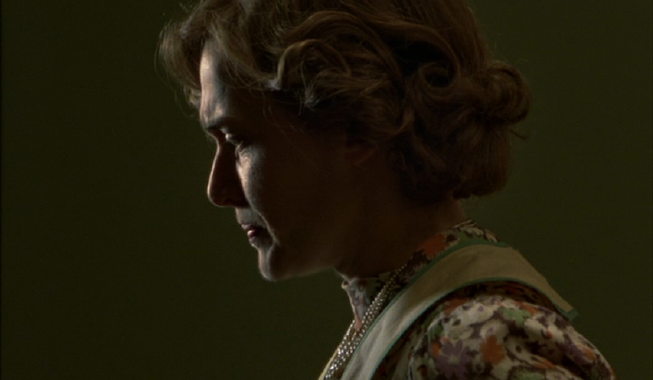
They say all the great directors are fleeing to television. I hadn't seen any evidence of it...until HBO snagged Todd Haynes. No, not our Todd! I take back every mean thing I said about Velvet Goldmine and I'm Not There - just say it ain't so! As it turns out, this was the best move he could have made, at least when given the freedom to expand and amplify the rich melodrama of James M. Cain's novel to five hours of sobbing, slapping, scheming, screaming, backstabbing, screwing - CinemaScope-sized confrontation and catharsis! Haynes gets his Sirk de Soleil on, embellishing every moment of mortification, languishing over each indignity endured by his oppressed pie maker Mildred Pierce, epitomized in an extended montage where she hits the pavement hunting for a job on the Depression-era streets, stopping only when the inside of her shoes are caked with blood. Winslet's Mildred, "a grass widow, the great American establishment who never gets mentioned on the Fourth of July," makes a stand against becoming yet another silently suffering housewife by ditching the husband, tapping into her entrepreneurial spirit and defiantly opening a restaurant in a climate of economical hardship and practicing a liberated sex life that even lands her in the arms of a fat James LeGros. Her pep is irresistible, but tragically the one shackle she can't shake loose is the burden of motherhood that mangles her best qualities - judgement, thrifiness, common sense. Although she's perpetually aware of the harmful nature of pretentious daughter Veda, who actually makes catchphrases out of unsayable expressions like "Ye gods and little fishes, hear my cynical laughter!", her devotion is her constant downfall. Deviously, Veda taps into that same feminine strength to effortlessly get everything she wants. Ultimately what she wants is to destroy her mother, so that when she waltzes from Guy Pearce's bed to the vanity mirror in flagrante delicto in front of Mildred she mocks everything that she is: a mother, an independent businesswoman and a lover/wife. Haynes delights in building Mildred up just to tear her down from her dreamlike ascent; that the series manages to be somehow more sin-soaked than the Joan Crawford classic, which had to add a murder to spice up the plot, is a serious achievement. It's his best work since Safe, one that makes Far from Heaven look like a toy. It has some great acting (although the series takes a notable slump once a brilliant Morgan Turner's young Veda is replaced by a mediocre Evan Rachel Wood's adult Veda) and even throws in a few interesting tidbits (I had no idea Mildred Pierce invented chicken and waffles - Eddie Griffin led me to believe it was the Dutch.) Also noteworthy is the great camerawork by Ed Lachman - this features the first steamy sex scene during which I was more focused on the gorgeous scenary outside the window (and I love Kate Winslet!) Its beautiful night exteriors, better looking than any actual film from this year, add to the extreme cinema experience of a TV mini-series.
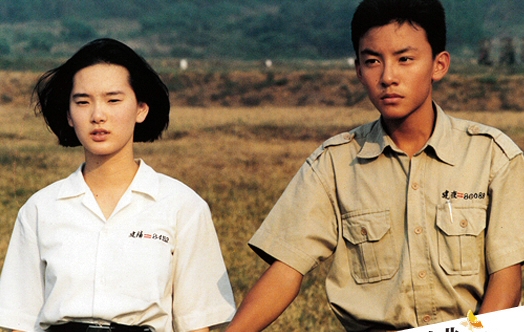
If 2011 was a little light on masterpieces like Margaret, it's completely acceptable that it should borrow one from the early 90's. And the mastery of Edward Yang's previously underseen A Brighter Summer Day is such that it almost doesn't need to be discussed. It's the rare film where the effort is evident - the four years Yang put into making the movie is up there on the screen so that every shot, every moment is perfectly expressive, and it imbues the film with the sense that this is what the director was put on earth to make (the fact that Yang has at least two movies like this - Yi Yi being the other - makes the importance of his work all the more obvious and his untimely death all the more tragic.) The pure scope of A Brighter Summer Day, its flawless juggling of multiple characters within a crowded social landscape punctuating the cultural confusion of the children of Chinese expatriots living in Taiwan, is such that the deceptively simple main story takes on an epic and universal meaning that's easy to forsake considering the movie's modest aesthetic. Yang's not a showy filmmaker, but the environment he creates is a dizzing haze of time and space and background action: I mentioned the amazing nocturnal photography of Mildred Pierce but Yang's movie, with several key scenes taking place on bustling Taipei nights, has characters entering from and dissolving into shadows that seem like the dark patches of memory reshaped to fit the imperceptable borders of a camera lens. Summer Day is as essential a portrait of displaced adolescence as Los olvidados or My Life as a Dog, but even those films can't come close to Yang's incredible sense of dislocation, where everything in the film is simultaneously personal and detatched, the romance and transgressions of youth sympathetic but unsentimental. It's a movie for people who love movies that is so necessarily cinematic: it has to be seen on the big screen, although afterwards you risk an instant melancholy over the fact that you'll never be able to see it again for the first time. I'd like to write more about this film in the future, but for now suffice to say if the criteria for picking a "best film of the year" is defined as "best movie to be released for the first time in America in 2011" this film has no competition.
(Incidentially I didn't see Hugo, but Martin Scorsese might be my cinematic hero of the year. He and Thelma Schoonmaker helped edit an "acceptable" version of Margaret, and his World Cinema Foundation are the ones who remastered Yang's film for its first official U.S. release. Even a three and half hour George Harrison documentary doesn't seem so easily mockable now - I mean, the man did finance Life of Brian and Bruce Robinson's early films, right?)

Doom permeates throughout Tinker Tailor Soldier Spy, but it's not really danger. Rather, it's the rank of treachery - and it smells like cigarettes. From beginning to end, there's a chilling indifference that so perfectly captures the tenebrous neutrality of the Cold War years; allies and enemies come together like two languid trains meeting in the middle of a track, not touching but almost brushing each other like curious animals. The uncertainty, ironically enough, is what Tomas Alfredson nails with masterful conciseness: everything from the drab, impersonal wardrobe (cold-blooded beige!) to the narrative that unfolds in an undefined chronology combines to create an eerie calm before a storm, one that's far away and may never actually hit, if in fact it exists at all. The Swede masters a Highsmith-style menace so that we never see the villain - evil is faceless, the chess moves made by phone calls and telegrams sent from hidden rooms. Flashbacks meld with the present so Mark Strong goes from memory to ghost to being alive after all, such is Alfredson's Clouzot-esque manipulation of a rising, peril-packed ambiguity. Under the perverted impression of borders and allegiances that shift as casually as the fractured sanctity of marriage, Tinker Tailor is set within a decaying establishment so rife with malignant traitors there doesn't seem any way to fix it. Gone are the days of WWII, when there was a clear enemy and tangible threat - now characters swap sides like they're changing pants, in the process burning fellow agents and destroying lives with as much regard as shoplifting a tube of ChapStick. Likewise, the events of the film come off as strangely weightless - a hit in Hungary feels more like an awkward skirmish on a school playground; smuggling secret files out of the MI:6 headquarters no worse than innocently swiping office supplies; a Christmas party is seaming with menace even while the supposed "threat" of Communist Russia is ridiculed by a drunken Santa Claus wearing a Lenin mask. Indeed, the banality of a extramarital affair is what obscures the betrayal of a government. Until one brutal "shit just got real" moment, even death seems like nothing more than a sinister prank. In this world, heroes are Tom Hardy's pathetic would-be Bond, so jaded he's left a shell of a man, and the victims are mostly women - more or less innocent bystanders - who exist (again, one is never seen) only as far as their significance to the male characters (and obviously, sexual ambiguity plays a big part too.) Without the context of state or nationality, there's a terror of impartiality akin to the fear of living a meaningless existence: that everything you've done, everyone you know, all that you've worked for and believed in may just be in service of one big lie. And on top it all we've got what is hands down the most uniquely nuanced lead performance in recent history, as Gary Oldman's George Smiley sets to the task of unmasking a mole within the appropriately-named "Circus," moreso with resignation than resolution. The setting couldn't be anything but the dispassionate mid-70's, but it couldn't have been made anytime but now: the film has its own language, like code, and a style that's both flashy and subdued. But it's not a trick - it's just possibly the best spy movie ever made.
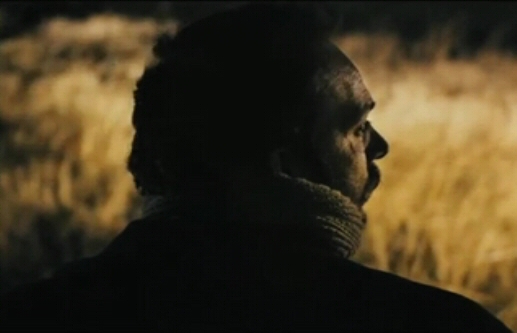
Like Tinker Tailor, there aren't many females in Nuri Bilge Ceylan's Once Upon a Time in Anatolia, but the two silent women who show up and what they mean to the convoy of men who've set out to locate the body of a murder victim over an extended night are central to uncovering the film's wonderfully shrouded narrative. The two parallels of this plodding procedural involve memory: the hazy recollection of the accused murderers and investigators reminiscing about their own pasts. They're surveyors; explorers of buried or unearthed personal history that's lost to time or hardly seems important any more, excavated by returning to the beginning and piecing the parts together in what must be the most reflective narrative ever committed to CinemaScope. The beautiful use of widescreen photography gives an idea of the expanse of nature and narrow range of human understanding: is it ever going to be clear why two people murder another man, their motive and the extent of their crime? In this, Ceylan's film has a lot in common with Bong Joon-ho's Memories of Murder while sharing the sober absorbtion of past events that haunt Michael Haneke's Caché and Lucretia Martel's Headless Woman (in other words, some of the best films of the last decade.) In my TIFF write-up I jokingly called it "a roller coaster ride for people who hate roller coasters," but that idea really does sum it up: following this group, riding and climbing in and out of their tiny cars, really is a thrill for the budding filmlover, even though the deliberate pacing hardly suggests "thrills." Probing the geography of Once Upon a Time's windswept hills was the most rewarding experience I had with a film in 2011.
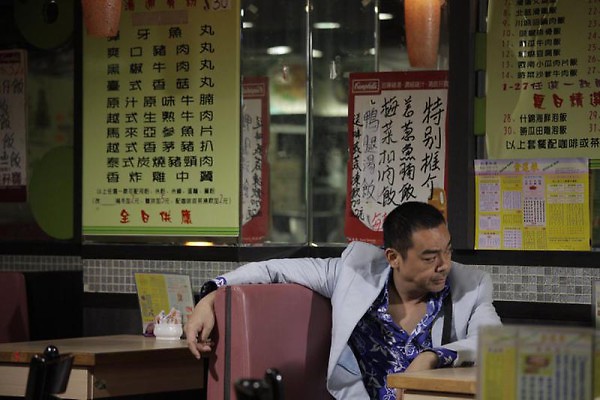
"Don’t mistake the march of commerce for progress and civilization" is one of Thoreau's themes in the essay from which Life Without Principle presumably takes its title (the English title that is; the Chinese loosely translates to The Gold Deprives One's Life, which is also pretty awesome.) The march dissolves into several intimate moments of helplessness and hysteria among the characters interspersed throughout the clashing narratives in Johnnie To's most richly-observed film, particularly the assault on an overconfident loan shark who moments earlier countered Thoreau's warning with the watchword "If it can be solved with money, it's no problem." Principal at the expense of principle is such a reliable theme it isn't even brought up anymore in writings on crime films, the essence of all being the motivation for money and the loose ethics that bring people closer to success and security. So the idea of making a gangster movie without money - without that glowing suitcase or impenetrable casino vault - is inspired, and To takes it a step further by making financial woes the direct source (in the case of the bank teller), indirect source (in the story of the cop and his wife) and swirling drain of a dilemma (the triad members) for people whose lives are shaken by the devastating macro-event incited by the Greek debt crisis. Not that the movie settles for a simple "money is bad" approach (if anything, it's "lack of money is bad")...ethics and economy just happen to be among the many things these characters have taken for granted that suddenly become so vital, just as the movie makes To seem so suddenly essential a filmmaker. Principle features the most exciting storytelling of the year, a thrilling network of satisfying threads that for me gives the film the kind of innovative importance Pulp Fiction continues to have for so many people: moreso than Tarantino, To takes the time to humanize even the most profligate criminal. A crook can be honest, a decent citizen can do something despicible, a guy who seems to really have it all figured out can be broke and desperate or dead 2 hours later: when the carpet is pulled out from under them, all bets are off. I love it - I can't imagine life without Life Without Principle.
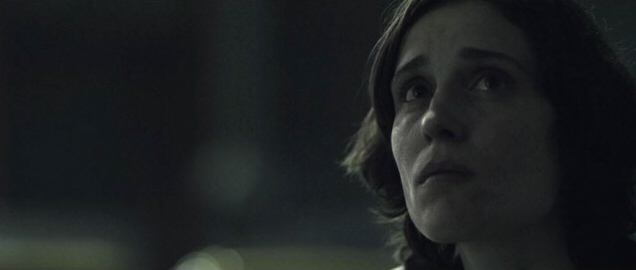
The desperate desire to belong, even at the expense of freedom and identity, is the abstract angle and the ultimate undoing of the mysterious society known as Alps in Giorgos Lanthimos' superb, in some ways superior follow-up to Dogtooth. While the earlier film covered everything there is to know about the adulterated confinement of family, Alps seems to be about everything else out there in the world - relationships and jealousy, groups and exclusivity, ambition and backstabbing - without dealing directly with any of that stuff at all. The key human feeling is acceptance, although in the Lanthimosphere said acceptance is appropriated from others on a purely artificial stage. Fiendishly invading private lives (there's a vaguely horror, quirkily science fiction angle to all this, like Lanthimos made a version of Body Snatchers following the pod people; imagine what his take on something like Surrogates would have been like), the Alpses seem like the worst kind of emotional exploiters except that they give themselves over to the whims of their bereft clients and in turn become the exploited. As it turns out Aggeliki Papoulia's needy nurse Mont Blanc is more than willing to subject herself to learning the part and speaking the lines, preferring the pre-written roles to the uncertain cliffs and crags of her own life. She wants to be the biggest mountain to stand out among the flat, achromic world: even the way Lanthimos shoots his actors, on the edge of the frame or from an isolating distance, suggests that the characters are constantly vying for the camera's attention against one another. When the Alps begin replacing each other, their society's synthetic surface becomes as tainted as the one in Dogtooth. As in that film, Lanthimos offers more wonderful deadpan comedy, moments of cold intimacy and gruesome violence, another homerun performance by Paopulia, and he offers something else: the feeling of compassion in a film where that word shouldn't even exist. And it feels like paradise.
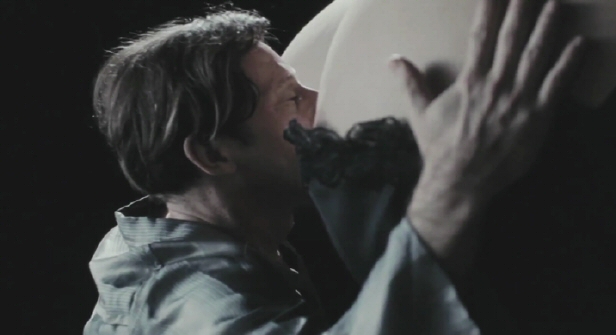
Another great follow-up to an outstanding breakthrough film was Marjane Satrapi & Vincent Paronnaud's Chicken With Plums. More than merely a worthy companion to 2007's Persepolis, this is one of the most ponderous, expansive and boundless movies to take place largely in a single room with a man lying in a bed. Mathieu Amalric's Nasser-Ali Khan has chosen to die, the enduring ache of living a mediocre life while housing the sequestered soul of an artist finally too unbearable to abide. His facile suicide provides the frame for a film so interested in the past and future it shifts from one segment to another as if it can't wait to tell us something new about its characters. Satrapi's style of animation, which is her artistic personality, makes a graceful transition to live action in a film that manages to be both achingly romantic and spiritually shattering at the same time. It tackles life's disappointments - the tragedy of settling for something less, the music inspired by the love of one woman that captures the heart of another (the music will never be for her), the revelation that behind every bit of magic there's a dispiriting reality (the puppet show scene reminded me a lot of the end of The Illusionist) - while also affording typical downers like death their own natural beauty. The way characters accept the end of life is measured in earthly pleasures: the final days of one person are spent savoring cigarettes so that the smoke left around her body becomes the symbol of her departed soul; Nasser-Ali's miserable fate is sealed with the rejection his favorite meal, also the title confection. In his self-structured tomb of a bedroom, Amalric experiences insights into his own life, erotic fantasies, memories of the girl he lost, yet somehow these scenes are never maudlin - Satrapi & Paronnaud embrace the absurdity of the situation and playfully consider the folly of Amalric's plight while also acknowledging its sadness; they measure our obligation to others to go on existing against the unendurable futility of continuing to live an empty life. Adorned with heartbreaking performances by two lovely actresses (Maria de Medeiros and Golshifteh Farahani), Chicken is a remarkably timeless human story that evokes Bergman, Buñuel and Méliès while maintaining its own rewarding charm.
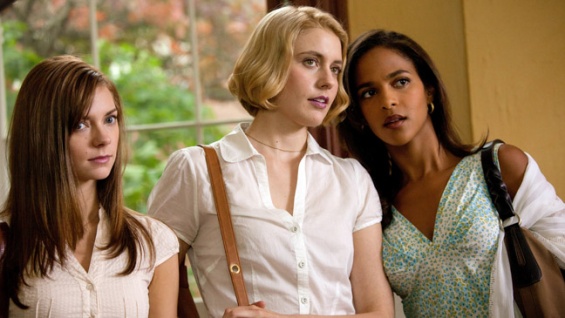
In a year where we welcomed back, with varying levels of excitement and relevance, directors like Bruce Robinson, Lynne Ramsay and Monte Hellman, Whit Stillman, the unassuming J.D. Salinger of American Independent Cinema, had the year's best comeback with Damsels in Distress (jesus - Whit Stillman, Todd Haynes, A Brighter Summer's Day...is my list of favorites this year actually from the 90's?) With an approach as fun and old fashioned as the film's title, the director is clearly in his comfort zone with snappy Philip Barry-esque dialogue and therapeutic tap dancing sessions that allow him to release his inner-Mark Sandrich. And if he can relax, so can I; for the starving Stillman fan, Damsels is veritable feast of all the things that make him great. Is it the same caliber as his first three films? Not quite, but the biggest problem is simply that its mundane location suffers comparatively to the more romantic locales of Barcelona and New York City. On the other hand, it's the perfect Stillman setting. College is the ultimate transition, where we all go to experience change, decide to save the world and develop nostalgia for our fading youth (say, weren't you that girl I fell in love with in grade school??) When else in our lives are we that vulnerable, just as achievement seems so on-the-horizon that success is practically a foregone conclusion? The funny thing is that, unlike his previous characters, Stillman doesn't seem interested in bringing his damsels down a notch. He's supportive of their ventures to civilize campus, save any despondent souls from suicide and start a new dance craze...it's the kind of delusions the director can gladly get behind, especially when the alternative is the reality of uncouth, unmotivated frat boys and "op-er-a-tors," the source of his damsels' distress. Stillman revels in the confusion, which makes for a bumpy ride of a film that's weirdly been labeled his most "accessible" when the least that can be said is that it stands up with his best work.

"Find out what you want and learn how to ask for it" is Tony Shalhoub's compassionately insightful, infuriatingly complicated advise to Reese Witherspoon in How Do You Know, James L. Brooks' best film since Broadcast News. Normally I don't feel compelled to defend a $120 million movie that deservedly flopped (even without star and director salaries, I don't understand why they needed $50 million to make it), especially one that had its official (dismal) theatrical release last year. But this one is so good - I can't stop thinking about it, and I've seen it several times now. Like the best of Brooks, it's sentimental and full of undeserved pratfalls that work against what the movie's otherwise achieving virtues. Some of the fundamental questions the film asks are: Can I fault someone for being who they are? How many indignities and compromises are required to live a happy life? What responsibility do I have to my family? How do I go about re-adjusting my life because I'm 31 and .3 seconds slower getting to first base? What's left for a motivator when there's no one left to motivate? How do you know the answers to these things? The movie follows Overnight Delivery duo Paul Rudd and Reese Witherspoon as they figure out what direction to take their lives in and find resolve in yet another seemingly rhetorical question: "When you're in something, you've got to give it everything you have or else what are you doing?" It takes its time, but that's what's great about it. People who criticize the movie don't get why that's great or, coming from someone who loves movies, why Witherspoon sitting down to watch Kramer vs. Kramer is an infinitely more touching and rapturous moment than, say, Emma Stone and Ryan Gosling re-enacting Dirty Dancing. The movie has its problems, but so do its characters and that's what makes it beautiful.
WORTH MENTIONING
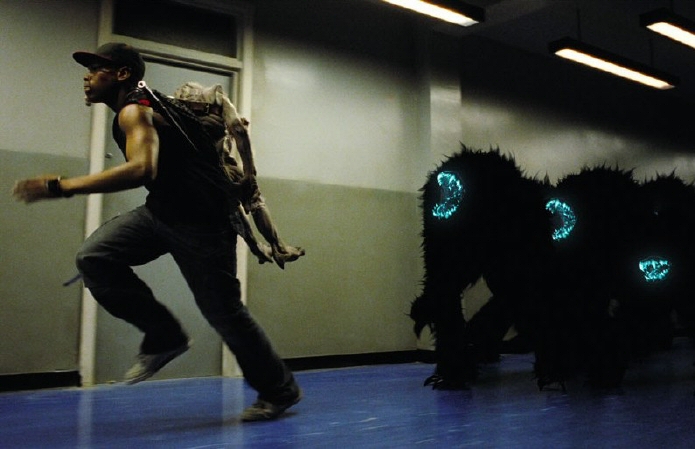
Richard Stanley recently said that one of Hollywood's major problems is the wrongheaded notion that science fiction movies all need to be action-packed thrillers. I am 100% in agreement with him, and have been for years, but for some reason two mainstream sci fi releases from this year managed to marry run-of-the-mill action movie antics with some seriously affecting fantasy elements and are worth mentioning. Both helmed by Brits whose directorial approach is to wear their heart on their respective sleeves, the movies displayed a refreshing compassion for the lead characters thrown into an incogitable situation to the extent that the major theme of each film is nothing less than the search for humanity.
I immediately blamed and suspected my love of Attack the Block on the fact that it's a much more honest and satisfying tale of alien invasion than the caked-in-nostalgia Super 8 and a funnier and more successful import from across the pond than Simon Pegg's Paul. The portrait of its heroes as dead-end city kids whose actions actually incite the invasion rather than the wholesome, Spielberg-sucking 70's suburb brats of Super 8 made their plight more relatable, and the brilliantly simple design of the genuinely scary space creatures are far preferable to Paul's self-aware, E.T.-riffing take on their Seth Rogen-voiced visitor. J.J. Abram's Cloverfield-looking CG monstrosity, with a confusing albeit excessively-explained backstory, similarly had no chance against the practically-designed, dudes-in-costumes, straight-up evil Block monsters. Not that I don't appreciate the occasional throw-back to the kind of fantasy movies we all loved growing up, but Attack the Block feels fresh, as original in its execution as it is obvious in its conception - a movie I can get behind NOW. But again, I don't want to praise the movie just for being a better alternative to the other straight-forward science fiction films of the year - it's a classic good time at the movies that thoroughly stands on its own four legs.
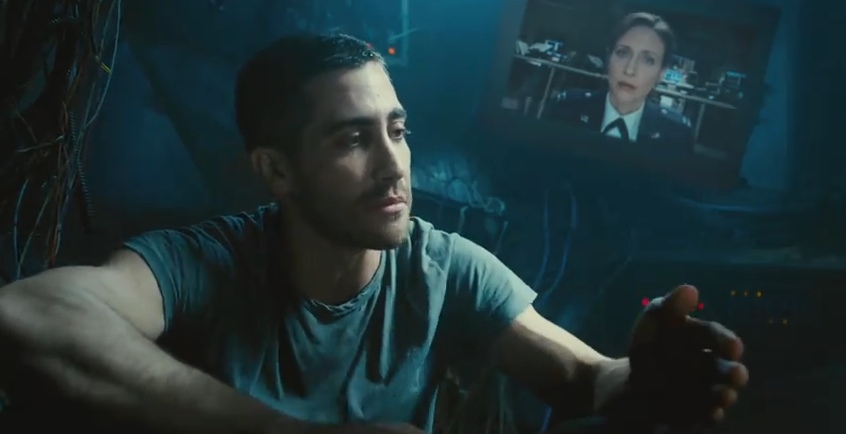
I was dead set against enjoying Duncan Jones' Source Code, a stupidly-titled, SxSW sci fi spin on Groundhog Day and Quantum Leap by David Bowie's son. I liked Moon ok, but it felt derivative and leaned largely on a typically great performance by Sam Rockwell. Source Code isn't going to win an award for originality - no matter how you look it, it has that "primo making-the-rounds super-exciting spec script!" feel - but at its core it's a contemplative story about one man's life weighed against the multiple lives he's asked to anonymously give his own for. It's hard not to be effected by the concept of sacrifice - the soldier killed in battle, Bruce Willis at the end of Armageddon - and Source Code goes above and beyond to show what one man's existence means in the giant scheme of things and in the context of the people his being effects. The movie has big ideas that it doesn't hit you over the head with and, like the also better-than-expected The Adjustment Bureau, it's all about the girl. It's hugely satisfying to find this level of humanity in what could have been yet another gimmicky sci fi premise in a well-reviewed, largely worthless movie like Limitless, with characters you kind of despise a'la In Time, but Jones really pulls it off. Maybe I should consider giving Real Steel a shot?
NOTABLY HAVE NOT SEEN
Certified Copy
Hugo
The Interrupters
Miss Bala
The Secret World of Arrietty
Shame
The Skin I Live In
Snowtown
3D Sex And Zen: Extreme Ecstacy
DO I HATE STYLE?
Obligatory Year-End Thoughts on TREE OF LIFE and DRIVE
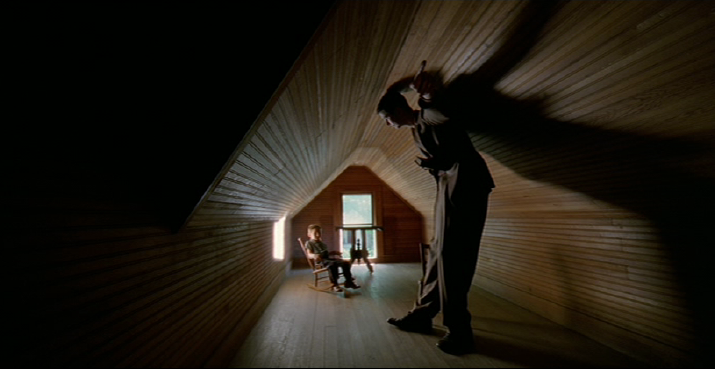
The most amusing thing to read in everyone else's 2011 year end lists have been the various defenses of Tree of Life. Ranging from unabashedly worshipful to delicately apologetic, all are insistent that Terrence Malick's tour de force must be acknowledged as the cinematic event of the year. And I agree...to the extent that Tree of Life is the film everybody really should experience. But whether it deserves to be canonized as the remarkable achievement so many claim it to be, warts and all, is an argument that has over the past half a year become far more interesting than the movie itself. The larger consensus is that it's easy to defend the good stuff in the "Waco" section and skirt the somewhat embarrassing issues of the Sean Penn bookends, the pervasive spiritualism, the aggressive themes - grace, goddammit! - and thin narrative compensated by a series of muted voice-overs (or, Terrytweets.) That's not even getting into the distraction of the dinosaur party/Dawn of Man Discovery Channel interlude that has undoubtedly fueled the fire of its most ardant detractors. Ultimately it's not fair to excuse that stuff when it's such an aggressively crucial part of the movie: it can't be redacted from your memory of the film, and if you're giving it the #1 slot on your list you're saying you like all that stuff too. But for the sake of not reiterating the same stuff us 'smokesters covered in our Tree of Life back-and-forth, I'll just focus for a minute on the better parts of the movie: do I even really like that stuff? The images are undeniably mind-blowing, Malick and Emmanuel Lubezki make a true case for "art in cinema" with shots of afternoon light reflected off the edges of doorframes and their fleeting corner-of-your eye "periphe-reality." But in a year when so many of the films from my "favorite" list are novelistic and don't rely on imagery, when we're reminded how amazing Edward Yang is, can I really endorse the reclusive genius' brand of "lookit" auteurism, his "flowing" cinema that seems like any given image could be agreeably synced to any song from Live's Throwing Copper album? I care about ideas, and maybe that's not what's popularly thought of as "cinematic" these days - I just know that if I stop to think about the actual plot of Tree of Life it makes me wince. I'd like to think I'm open to new forms of narrative, and honestly this kind of thing hasn't been a problem with Malick's earlier films, but his tendency to rely on the "visual language of film" is progressively turning into something I don't feel I can get behind. I guess I still like the movie overall and admire its technical innovations, but if I had to chose I'd pick Lars Van Trier's more satisfying planetary-angstfest Melancholia.
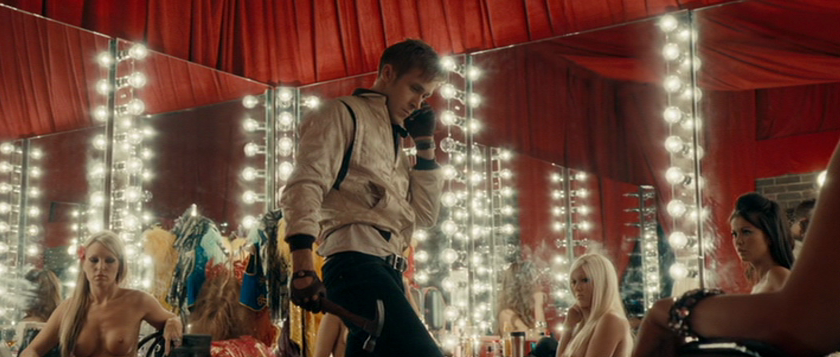
Style and genre aren't exclusive of each other. The marriage was a happy one in Point Blank, in Blood Simple, and - most relevantly - in To Live and Die in L.A. and the work of Michael Mann. So to say Drive is overstylized isn't really getting at its problem; to say the style isn't in service of the story is closer to the mark. Like Tree of Life, there's nothing in Nicolas Winding Refn's film that isn't amazing to look at, or sense, and there are a handful of scenes that you'd be an idiot to argue aren't breathtaking. But there's a weird fetischism for technique going on throughout the movie where every shot wants to call attention to itself like an overcompensating middle child - it succeeds, although I'm not sure in service of what. Refn isn't breaking territory that wasn't already covered in Thief and The Driver, and (similar to Joe Wright's "I offer my highbrow style to this lowly action film" exercise Hanna) the xerox blotches still show all over the pretty pictures. Nothing is surprising: the heist gone wrong, the double-cross, Gosling turning out to be an unpredictable badass loose cannon, the supposedly likable gimp character who dies at the exact point in the movie where the supposedly likable gimp character is supposed to die...all this would be fine if the way Refn shot it didn't suggest monumental importance. I'd like to think it's not just backlash against the movie's popularity that resulted in me not heaping it with praise, and lord knows I hate having to agree with Quentin Tarantino (I'll at least acknowledge that Drive is a million times better than his seminal films.) I'm glad a lot of my friends like it. I wouldn't criticize their enthusiasm for a second. There's no denying I love that Drive exists, I simply don't think it offers anything worthy of its aggressive, undoubtedly "cinematic," aesthetic.
2011: YEAR OF THE BEST PART 5's OF ALL TIME
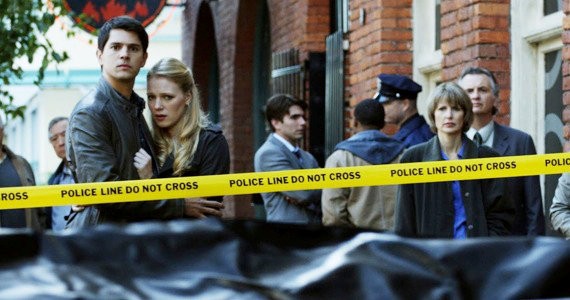
Seriously, can you name two better "part fives" than the ones that came out this year? No, Empire Strikes Back doesn't count. In fact, are part five's not typically the very worst a series has to offer? Rocky, Star Trek, Halloween, Friday the 13th, Allan A. Goldstein's Death Wish V: The Face of Death...is Police Academy V: Assignment Miami Beach truly the best part five ever made? Well Michael Winslow can make a screeching-tire sound effect, because that one's been knocked off its insourmountable podium. That screeching sound effect is even more appropriate considering the first usurper to the throne is Fast Five. From series savior Justin Lin, it is a balls-out, unapologetic crowd-pleaser that every future summer movie should study as a firm example of what gets American butts into movie theaters. It does everything a sequel should: it ups the ante (a daring heist that breaks out across Rio de Janiero!), brings in some welcome new blood (The Rock, finally utilized correctly!) and even managed to make me excited to see characters from previous entries I didn't instantly recognize (who were those two Hispanic versions of Casey Affleck and Scott Caan again?) There isn't a scene without action or sexy confrontations or sexy action and it never lets up, just as I hope the series won't as it inevitably keeps churning 'em out.
I don't care what anyone else says about the Final Destination movies and stick by everything I said in our Summer Movie Preview (especially the evidence of my correct prediction of the new one's twist ending!) The simple fact is that each one has been rewarding not because of any reliable "formula" but rather their astute attention to the world around us, every space of it a potential threat to our underappreciated existence. It amplifies people's seemingly irrational fears - of dentists, of amusement park rides, of flying on an airplane or sitting still for laser corrective surgery - and relates to the more universal ones like being in the middle of a major car accident or losing a loved one, with innovative dexterity. The lingering dread that's been realized in all five of the movies keeps getting more intense and surprising with each new director, and James Cameron vet Steven Quale might actually have made the most interesting one yet. Like Fast Five, it's not the best one (that would be the respective third film of each series) but I defy Hollywood to come up with a better movie with the number 5 at the end of it.
CONTINUE ON TO YEAR-END AWARDS AND GREAT MOVIE MOMENTS...
<<Previous Page 1 2 Next Page>>
home about contact us featured writings years in review film productions
All rights reserved The Pink Smoke © 2012